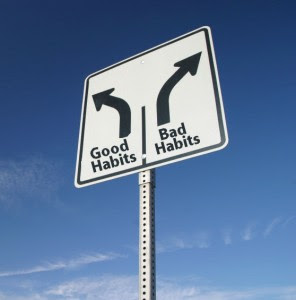
“
Always keep a song in your heart; it’s like karaoke for the voices in your head.” - Robert Fulton Abernethy
Most of you know the whole Karaoke thing. If you are like me, always curious about how “things” started, then you probably want to find out how karaoke came about. Formally, they call that history. Well, here is a quick history about Karaoke.
Karaoke is a Japanese word (Kara-oke).
Kara means
empty and
Oketsutora means
orchestra. Karaoke means an empty orchestra. Basically, you hear the music without the vocals.
In the 60s, The American TV network, NBC had a karaoke-like series. It was called
Sing Along with Mitch. The primary difference between “Sing Along” and “Karaoke” is the lack of lead vocals. In Karaoke, you are the lead vocalist.
Japanese musician, Daisuke Inoue, invented the notion of karaoke. When he would miss an event at a dinner or a party, he would provide a recording of his performance. People would sing along to this performance. This karaoke music was recorded on cassette tapes resulting in the development of “Minus-One Music.” To this date, I still remember those three words ingrained not only in my mind, but probably in my soul too.
Karaoke is popular in Asian countries like Japan, Philippines, Korea, and Taiwan. In 1990s, the concept of karaoke entertainment entered the market in United States and Canada without any success until recently. Now, you may find that there is a karaoke setup at your nearest bar on certain days. That is what I have been noticing from my town, and even around the country while looking up on my Facebook friends’ statuses. It seems that the typical background music at your favorite restaurants is being replaced by not only the enjoyment of listening to music, but the ability to sing and dance to it! Besides, if you’re more of an observer, you may also indulge in just watching people singing and dancing – it gets even better when certain beverages are involved.
I was 5 years old and living in Manila, Philippines when I was exposed to karaoke. It may possibly be the biggest contributor to my passion for music, although my father was a professional piano player performing in the Philippines and other Asian countries – so genetics may also be a factor.
Karaoke has always been a big part of the Filipino culture, at least from what I can remember. I may have called it our “National Sport” at one time because you can’t go to any party in the Philippines without expecting a karaoke in the middle of it all. Although I was around this whole karaoke thing since I was 5 years old, I never really sang a song until I was 16 years old but like most, I enjoyed music.
These days, I’m enjoying singing and dancing to karaoke with friends. We go out to restaurants and bars. But recently, good friends of mine bought a karaoke system to use at home. This really hit the home run. I’m back to when I was 5 years old!
A few months ago, close friends of mine have been enjoying this whole karaoke thing at our favorite bars and restaurants. Karaoke was the weekend vacation from a tiring work week. It is something to look forward to. In our circle of friends, we have some who sing and some who don’t. We have many who like to dance while some prefer to watch it all. But regardless of their preference, everyone enjoyed the karaoke atmosphere, as if it is the closest thing to a live music event they will ever get.
Whether you do or don’t like to dance, sing, or even the concept of karaoke – Based from my own observations and experience, I can attest that you like listening to music. Why? Music touches your spirit and soul that allows your mind to freely wander and your heart to beat to its own rhythm.
You may be into metal, hard rock, classic rock, pop, punk rock, polka, country, indie alternative, disco, trance, rap, hip-hop, house, or gospel – it really doesn’t matter because ultimately, music affects your sensation and feelings. Without music, “life would be a mistake.”
 I once led a group of over 30 individuals for almost a year and for some divine reasons, I purposely took the big role.
I once led a group of over 30 individuals for almost a year and for some divine reasons, I purposely took the big role.



















